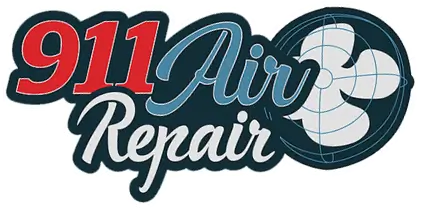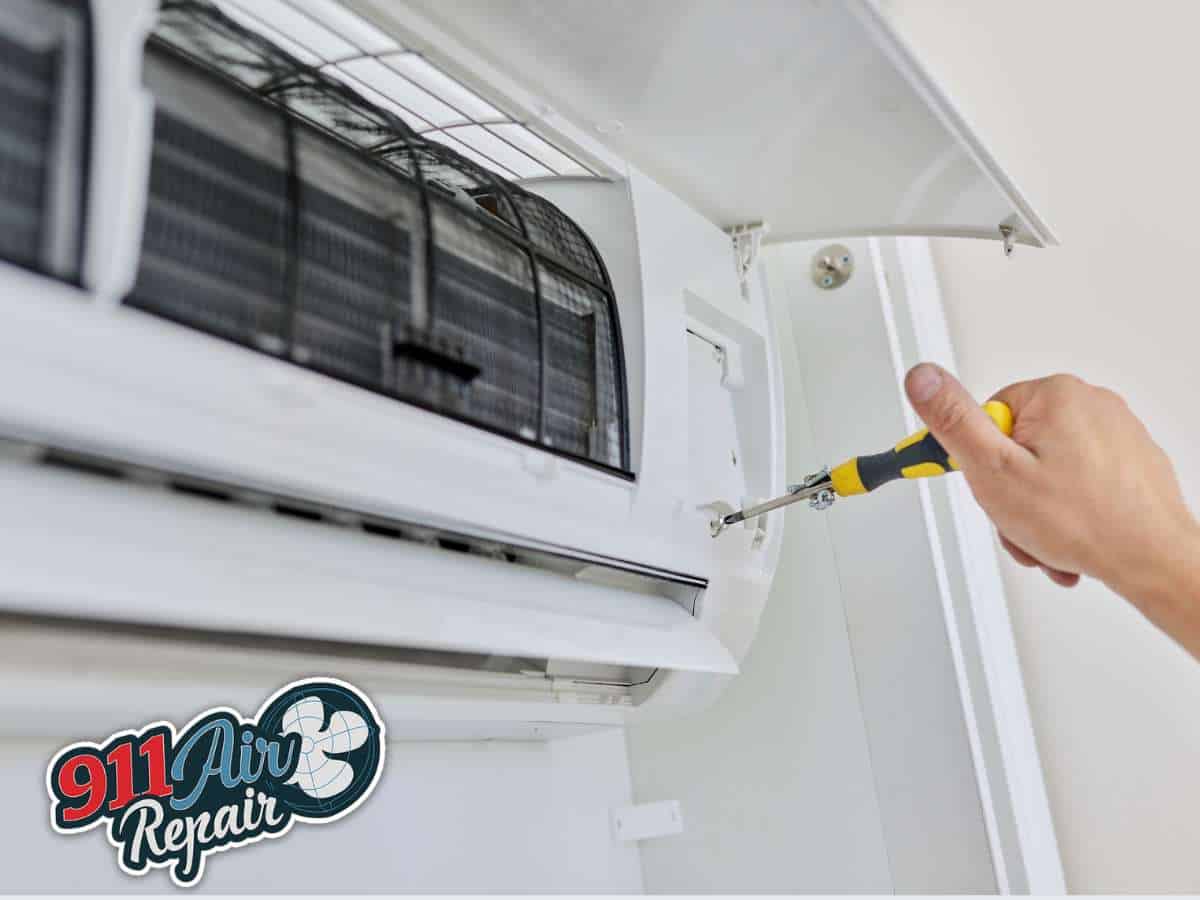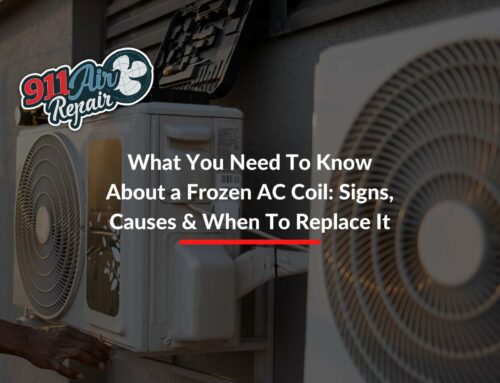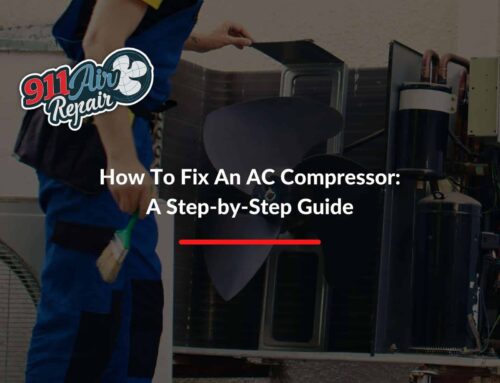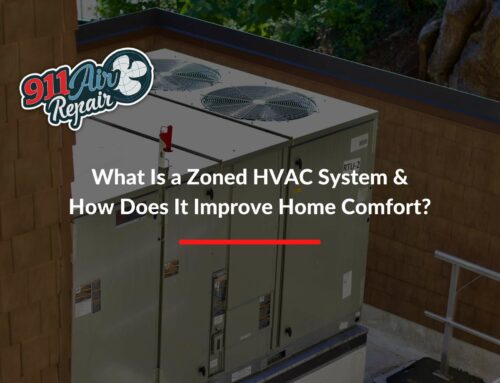Effective Tips To Prevent Your Air Conditioner From Dripping
Have you started to think water leaks from your air conditioner are normal? While AC leaks are common, they can become serious if unresolved, especially when considering the money you’re spending on utilities and the importance of conserving natural resources.
Beyond the financial aspect, there’s also the matter of aesthetics. If your AC is leaking, you’ve probably found yourself having to catch the water in a container, which is inconvenient. That’s why we put together this article: to help you understand why your air conditioner is dripping and when it might be time to call for professional AC repair in Maricopa to prevent further issues.
Why AC Units Leak Water & Why It Matters
Even with proper maintenance, all air conditioners have the potential to develop water leaks over time. The amount of water an AC produces depends on factors like humidity, system size, and airflow. In most cases, this water is simply condensate, a natural byproduct of cooling the air.
But if this water is not properly drained, it can overflow or escape the system, creating puddles inside or around your home. If your AC is leaking water, it’s a problem because it often indicates that the system isn’t working efficiently.
When an air conditioner struggles to function properly, it has to work harder to cool your home, which can lead to higher energy bills. According to USA Today, electricity costs are, on average, 5.5% higher than a year ago, and there are several factors contributing to this increase. A malfunctioning AC can add to these costs by forcing your system to expend more energy than necessary!
Additionally, leaks aren’t limited to one type of system. Central air units, mini-splits, and window AC units can all experience water issues. Central systems may cause uneven cooling or leaks near ductwork, mini-splits might drip inside living spaces, and window units are especially vulnerable to damage when water collects around the installation area.
Common Causes Of AC Unit Water Leaks
Several issues can lead to a leaking AC unit. Identifying the root cause helps determine the right action, whether it’s a quick DIY fix or a job for a certified AC contractor in San Tan Valley.
1. Clogged Condensate Drain Line
The condensate drain line directs moisture from the evaporator coil to the outside. Over time, dust, dirt, and algae can clog this line, preventing water from escaping. When blocked, the excess water accumulates and spills around the AC unit. Clearing visible debris from the drain line and flushing it with a vinegar or bleach solution often restores proper drainage. For stubborn clogs, a professional AC repair service can ensure the system drains correctly.
2. Dirty Air Filters
Air filters trap dust, dirt, and other particles to protect the system. When filters become clogged, airflow is restricted, causing the evaporator coil to freeze. Once the ice melts, it creates excess water that overflows the drain pan. Regularly replacing filters and keeping the system clean prevents leaks while maintaining energy efficiency and optimal cooling.
3. Low Refrigerant Levels
Refrigerants are essential for cooling air. Low levels can cause the evaporator coil to freeze, which leads to water overflow when the ice thaws. Hissing or bubbling noises from the unit often signal low refrigerant. Only a certified HVAC technician should handle refrigerant charging and repairs, ensuring your system runs safely and effectively.
4. Improper Installation
Incorrect installation can result in poor drainage or misaligned components, which can lead to water leaks. Common mistakes include sloping the drain pan incorrectly or failing to secure pipes and fittings properly. Having a licensed AC contractor in South Chandler inspect the system and correct installation issues ensures reliable performance and prevents recurring leaks.
5. Oversized AC Unit
An oversized air conditioner may cool a room too quickly, causing the system to cycle on and off frequently. This short-cycling produces excess condensation that the drainage system cannot handle, leading to leaks. A professional evaluation may recommend resizing or adjusting the system to improve efficiency and reduce water problems.
6. Damaged or Leaking Drain Pan
The drain pan collects water produced during the cooling process. A crack or hole in the pan allows water to escape, even if the drain line is clear. This can lead to water damage around the unit if left unchecked. Replacing the pan and checking it regularly during routine HVAC service visits can prevent leaks and keep your system functioning efficiently.
7. Malfunctioning Condensate Pump
Some AC units rely on a condensate pump to remove water from the system. If the pump fails, water will accumulate and eventually leak. Checking the pump for damage and replacing it if necessary ensures that water is properly removed, especially in basements or areas where gravity cannot handle drainage.
Preventing Water Leaks With Routine Maintenance
Prevention is the most effective way to avoid AC water leaks. Scheduling annual AC service in the spring ensures that your unit is inspected, cleaned, and tuned before the hot season begins. Technicians can identify potential problems like clogged drain lines, damaged pans, or low refrigerant before they escalate into major issues.
Routine maintenance includes:
- Cleaning or replacing air filters regularly: A clean filter ensures proper airflow through the system, preventing the evaporator coil from freezing and avoiding excess water buildup. Regular filter changes also improve indoor air quality and extend the life of your unit.
- Checking drain lines and pans for blockages or damage: Inspecting these components ensures that condensate water can flow freely out of your system. Even minor clogs or cracks can lead to leaks, water damage, or mold growth if left unchecked.
- Ensuring refrigerant levels are adequate: Proper refrigerant levels allow the system to cool efficiently. Low refrigerant can cause the coil to freeze, creating excess water when it melts. Checking levels during maintenance prevents this and keeps energy use in check.
- Inspecting electrical connections and system components: Loose or damaged connections can affect AC performance, causing it to work harder and potentially lead to water leaks. Routine checks catch problems early and maintain safe, efficient operation.
By keeping your air conditioner in top shape, you reduce the risk of leaks, maintain energy efficiency, and extend the life of your system.
When To Call a Professional AC Contractor For Water Leaks
While some minor leaks can be addressed by homeowners, many situations require professional intervention. Persistent water pooling, ice formation on coils, or unusual noises are signs that it’s time to contact an expert. A certified AC contractor in Gilbert has the knowledge and tools to diagnose the problem, perform necessary repairs, and prevent future leaks.
Trying to fix complex issues yourself may worsen the problem, lead to system damage, or create safety hazards. Trusting a professional ensures your unit operates efficiently and your home remains comfortable.
Get Your AC Back On Track Today
Persistent water pooling, ice formation on coils, or unusual noises are signs that it’s time to call a professional. While minor leaks can sometimes be addressed by homeowners, a professional has the knowledge and tools to diagnose problems, perform necessary repairs, and prevent future leaks.
Don’t let a small leak turn into a costly repair. At 911 Air Repair, your trusted Maricopa AC Contractor, we offer free in-home estimates and top-quality service for all types of air conditioning units. Contact us today!
19756 N John Wayne Pkwy STE 106,
Maricopa, AZ 85139
Phone: (480)-360-1234
Email: support@911-ac.com
